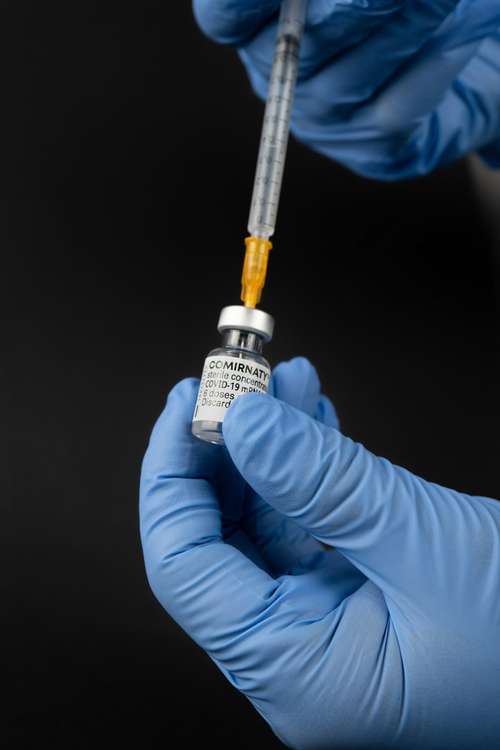This new development in Parkinson's treatment is turning heads. Researchers in Australia have been working hard on an innovative solution for Parkinson's disease, and the results look promising. Imagine not having to pop your daily pills anymore, but instead receiving a weekly injection that steadily releases medication over time. It's a game-changer for people managing Parkinson's disease!
Living with a neurological disorder can be a rollercoaster, with fluctuating motor symptoms and challenges in managing daily routines. The weekly injection not only promises better symptom management but also taps into advanced Parkinson's care, potentially transforming lives for those battling this condition. The idea behind this new injection therapy is to simplify Parkinson's management and reduce the hassle of daily dosing.
Breakthrough in Parkinson's Treatment
The new injection represents a significant breakthrough in Parkinson's disease research. Researchers have combined levodopa and carbidopa, the same drugs used in traditional dopamine replacement therapies, into one injectable formulation. This fusion means controlled release for an entire week, reducing the daily burden on patients.
This discovery was innovative because it merges familiarity with novelty. You might wonder, 'What does it take to shift from pills to injections?' A lot of hard work in neurology! The treatment was developed after extensive clinical studies focused on how to maintain consistent dopamine levels, which is key in managing motor symptoms relief effectively.
Developed in Australia, the findings have been published in the Journal 'Drug Delivery and Translational Research', which underlines the scientific rigour behind this new injection. The excitement in the neurology community is palpable as this approach could pave the way for more breakthroughs in advanced Parkinson's care.
How the Weekly Injection Works
At its core, this weekly injection therapy is all about simplicity and efficiency. The injection uses a unique delivery mechanism that steadily releases the medication over the span of a week. It combines the benefits of dopamine replacement with a sustained therapeutic effect, something that daily medication often struggles to achieve.
For those who have been counting on daily pills, the introduction of an injectable medication is akin to moving from a clunky old car to a smooth, efficient electric vehicle. This new injection therapy takes care of the constant need to manage timing and dosage, making Parkinson's management more predictable and less stressful.
It might sound like science fiction, but the process is rooted in real, tangible research. The idea is to build a medication reservoir in the body that gradually releases levodopa and carbidopa, smoothing out the peaks and troughs of dopamine levels. This steady release is crucial for controlling the motor symptoms associated with Parkinson's disease.
Potential Impact on Patient Lives
This weekly injection could have a profound impact on the everyday lives of Parkinson's patients. For years, patients have had to keep track of pill schedules, which can be overwhelming, especially when combined with other symptoms of a neurological disorder. Now, with a weekly injection, the process becomes much simpler!
Consider the hectic pace of modern life: juggling work, family, and health appointments is no easy task. This new injection therapy lays the groundwork for improved quality of life. By reducing the need for daily medication management, it allows patients to focus more on their daily activities and less on remembering their dosing schedule.
Patients are now provided with an innovative treatment that is not only effective in managing symptoms but also geared towards better consistency in drug delivery. This is especially important in advanced Parkinson's care, where fluctuations in motor functions can severely impact daily routines. The convenience of a weekly schedule is akin to having a trusted friend who always shows up right on time.
The potential benefits extend beyond just the convenience factor. With more consistent dopamine replacement, patients might experience fewer side effects, and overall treatment effectiveness could improve, leading to better outcomes in terms of mobility and overall well-being.
The Future of Parkinson's Management
Looking forward, the introduction of this weekly Parkinson's therapy opens up broader discussions about the future of neurological treatment. It sets a precedent for innovative treatment modalities that could transform how other chronic conditions are managed. The idea of fewer daily interruptions might soon become a standard for other forms of injectable medication in neurology.
This new injection strategy emphasizes a shift in Parkinson's research towards long-acting, patient-friendly treatment options. Numerous ongoing studies are examining how sustained-release mechanisms can be optimized further, and who knows what similar innovations might be on the horizon! Healthcare providers are keenly observing these developments to see if this new method can be integrated into standard care protocols.
One of the most exciting aspects of this treatment is its potential to reduce the trial and error often seen with daily dosing. With the weekly injection, there is less interference in daily life, which means more time and energy devoted to other important aspects of personal well-being. Its consistent medication delivery could be especially beneficial for patients who find it hard to adhere to strict daily routines.
The ripple effect of this successful research might eventually influence broader practices in both Parkinson's treatment and other neurological disorders. It raises the question: could we be on the brink of a new era in chronic disease management? With constant refinement and increased understanding, the answer seems to be a hopeful yes.
Emerging Perspectives and the Road Ahead
The reception in the medical community has been warm, with many experts excited about the prospects of this new injection therapy. While it isn't a silver bullet for every case of Parkinson's disease, it is a significant step in the right direction. This weekly injection is not just a medical innovation—it’s also a beacon of hope for those living with Parkinson's.
Medical professionals are optimistic, recognizing that managing Parkinson's disease typically involves navigating through a maze of complex treatments. With the advent of this innovative treatment method, the landscape of Parkinson's research is bound to change in exciting ways. Patients who once felt overwhelmed by daily regimens might now experience a renewed sense of control over their health.
In the grand scheme of things, this milestone in Parkinson's management may offer insights that extend well beyond neurological disorders. It invites us to rethink how medication can be delivered more effectively and sustainably, and to consider the broader implications for the future of healthcare.
While no treatment is without its challenges, the promise of consistent, weekly relief from motor symptoms is a significant advancement. Parkinson's management is evolving, and every step forward brings hope to many individuals and their families.
This journey—a blend of meticulous research, cutting-edge pharmaceutical technologies, and patient-centric innovation—shows us that the future of Parkinson's treatment is bright. As we continue to learn and adapt, the goal remains the same: to improve quality of life for those facing the realities of a neurological disorder. And with every new breakthrough, we get closer to making that a reality for millions around the world.




